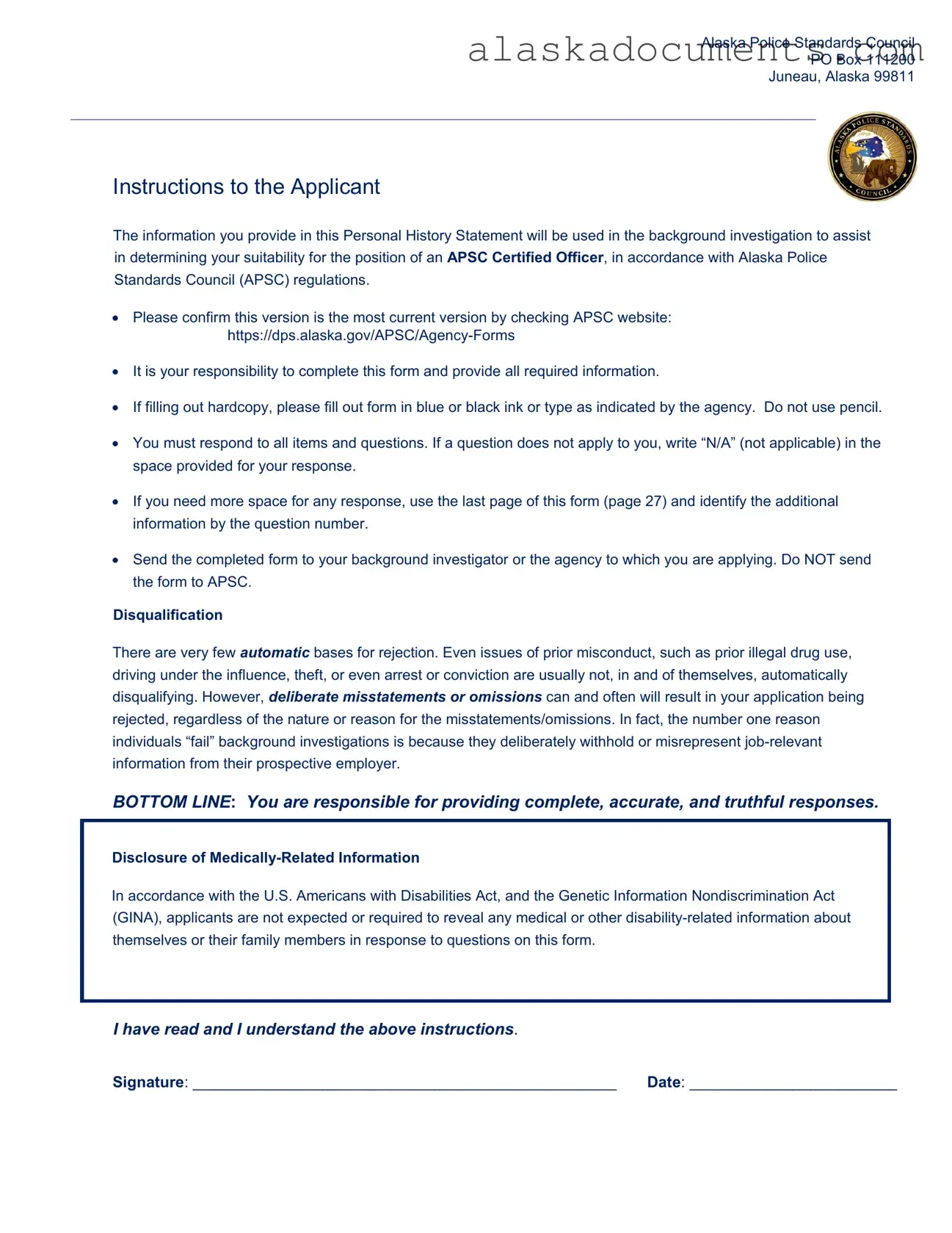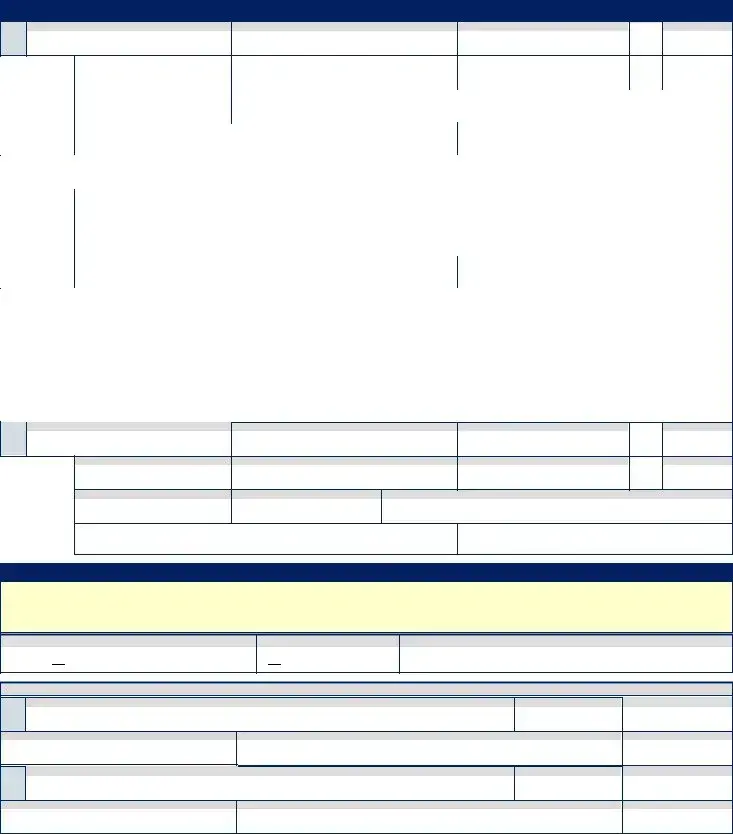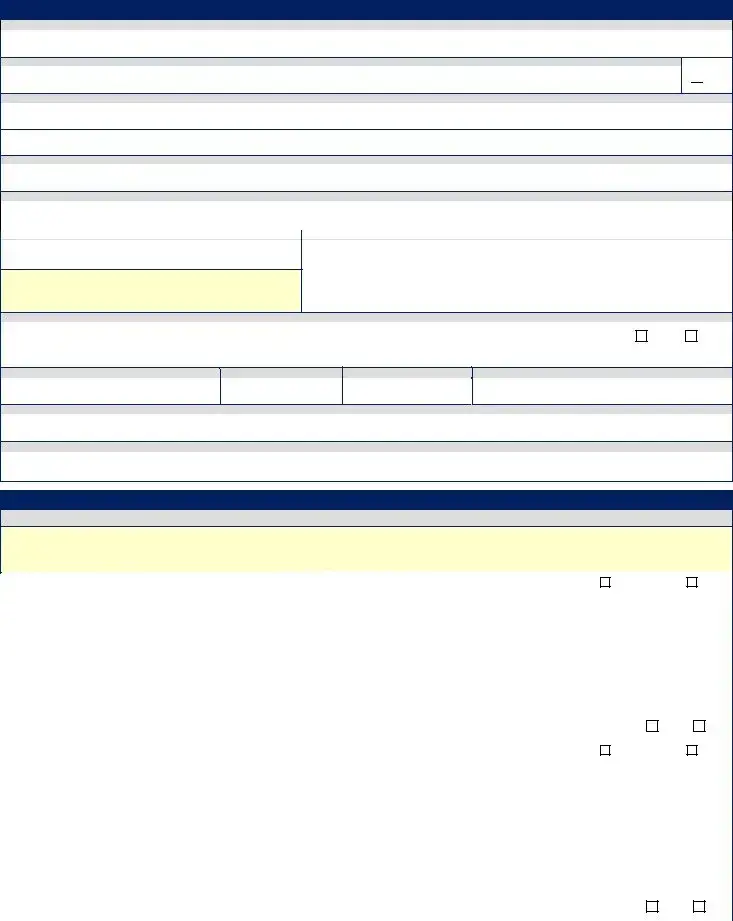The Alaska F-3 form shares similarities with the Personal Data Questionnaire (PDQ) often used in law enforcement applications. Like the F-3, the PDQ collects extensive personal information about the applicant, including their identity, family background, and references. Both forms emphasize the importance of complete and truthful responses, as inaccuracies can lead to disqualification. The PDQ also requires applicants to disclose any past criminal history, which aligns with the F-3’s focus on background investigation for suitability in law enforcement roles.
In addition to the various forms discussed, employers in California often utilize the California Employment Verification form to confirm potential hires' work eligibility. This form plays a vital role in upholding labor regulations, ensuring that individuals are authorized to work in the United States. For further information about employment verification, you can refer to TopTemplates.info.
Another document that resembles the Alaska F-3 is the Standard Form 86 (SF-86), which is used for security clearance applications. The SF-86 requires detailed personal information, including the applicant's history of employment, education, and family. Both forms aim to assess the applicant's reliability and trustworthiness. They also include sections for disclosing relationships with individuals who may pose a risk, further reinforcing the need for transparency in personal history.
The Employment Application is another similar document. While it may not be as extensive as the F-3, it still requires applicants to provide personal details, work history, and references. Both documents serve the purpose of evaluating an applicant's background and suitability for a position. The Employment Application often includes questions about criminal history and character references, mirroring the F-3's emphasis on thorough background checks.
The Background Investigation Release Form also bears resemblance to the Alaska F-3. This form is typically used to authorize background checks and requires applicants to provide personal information, including social security numbers and previous addresses. Both forms prioritize the collection of accurate and complete information to facilitate thorough investigations. The Background Investigation Release Form explicitly states the purpose of gathering this information, similar to the F-3's focus on suitability for law enforcement roles.
The Personal History Statement (PHS) used by various police departments is another document akin to the Alaska F-3. The PHS gathers comprehensive information about an applicant's personal, educational, and employment history. Like the F-3, it aims to evaluate an applicant's character and fitness for duty. Both documents require applicants to disclose relationships and any potential conflicts of interest, reinforcing the need for full disclosure in the hiring process.
Lastly, the Military Personnel Record is comparable to the Alaska F-3, especially for veterans applying for law enforcement positions. This record contains detailed information about an individual's service history, including personal data, assignments, and conduct. Both documents require a level of transparency regarding past behavior and relationships. The Military Personnel Record can provide insights into an applicant's character and reliability, similar to the F-3's objectives in assessing suitability for law enforcement roles.





 N/A
N/A

 N/A
N/A

 N/A
N/A


 High School Diploma:
High School Diploma:
 GED:
GED:

 QTR SYSTEM
QTR SYSTEM 
 SEM SYSTEM TYPE OF DEGREE EARNED
SEM SYSTEM TYPE OF DEGREE EARNED
 QTR SYSTEM
QTR SYSTEM 
 SEM SYSTEM TYPE OF DEGREE EARNED
SEM SYSTEM TYPE OF DEGREE EARNED
 QTR SYSTEM
QTR SYSTEM 
 SEM SYSTEM TYPE OF DEGREE EARNED
SEM SYSTEM TYPE OF DEGREE EARNED
 Yes
Yes 
 No
No
 Yes
Yes 
 No
No

